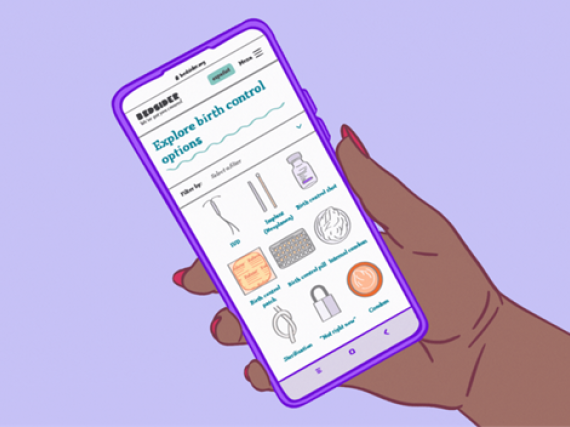Evaluating Families Talking Together
Parents have a far greater influence on their teen’s decision-making, particularly around sex, love and relationships, and ultimately birth control, than they may realize. And as many families are spending increased amounts of time together right now, this is an excellent opportunity to open discussions around these important topics.
Young people in the US, especially Black and Latino youth, experience a variety of adverse sexual health outcomes due to numerous factors, including systematic racism. For example, Latino and Black adolescents account for 4 out of 5 new HIV diagnoses and nearly 1 in 2 new STI diagnoses among youth younger than age 25. Additionally, the pregnancy and birth rate of Black and Latino teens is still significantly higher than that of their white peers.
National health organizations such as the American Academy of Pediatrics and the American College of Obstetricians and Gynecologists support health care provider efforts to involve parents as they discuss sexual and reproductive health care with their adolescent patients. Because both health care providers and parents play a central role in supporting adolescent health. Parents and young people see providers as a trusted resource for information on both sexual and reproductive health and teens most often identify their parents as being most influential in their decisions about sex.
Families Talking Together (FTT) aims to foster collaboration between health care providers, parents, and adolescents to prevent or reduce risky sexual behaviors and increase use of condoms in youth age 11-14. The program consists of several components including, a face-to-face FTT session delivered to parents, provider endorsement of FTT content, a workbook that families can complete together, and a post-in-person visit phone call with the parents to answer new questions.
A recent study looked at the efficacy of Families Talking Together and found that young people in the control group were more than three times as likely to have had sex for the first time during the 1-year follow-up period than their peers who participated in the FTT program. Additionally, adolescents who participated in the program and who were sexually active were more than one and a half times more likely to use a condom during sexual activity than their sexually active peers who did not participate in FTT.
Parents best support their teens with involvement, communication, and supervision—skills taught through Families Talking Together. While talking about sex may be uncomfortable, it is crucial for parents to take the lead and initiate the conversation. Be open; look for opportunities for direct, nonjudgmental dialogue; and regularly check-in about sexual and reproductive health needs, including contraception.
Talking to your teen works – and it makes a big difference.
Dr. Guilamo-Ramos is a professor at NYU, director of the Center for Latino Adolescent and Family Health (CLAFH), core developer of Families Talking Together (FTT) and Fathers Raising Responsible Men (FRRM), and nurse practitioner at the Adolescent AIDS Program at Children’s Hospital of Montefiore Medical Center.



